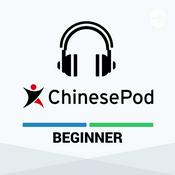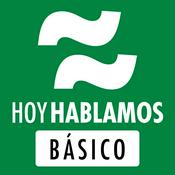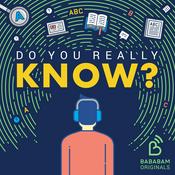871 episodes
- Ever wonder why your English feels "off" even though your grammar is perfect? This episode reveals the hidden layer of American communication that textbooks never teach—the unspoken rules, rhythms, and cultural codes that native speakers use automatically.
We explore five game-changing awareness shifts that explain why conversations feel awkward, why Americans seem indirect, and why waiting politely for your turn actually makes you seem disengaged. You'll discover how the same word can mean twelve different things depending on rhythm, why "We should get coffee!" isn't actually an invitation, and how Americans build connection through interruption rather than silence.
This isn't about memorizing more vocabulary or perfecting your accent—it's about recognizing that you've been playing a completely different game than the one Americans are actually playing. Once you see these patterns, you can't unsee them, and that's when real fluency begins.
Perfect for: Advanced English learners who are technically fluent but still feel like they're missing something in real American conversations.
Enroll Now: https://speakenglishwithtiffani.com/365System/ - In this transformative episode, we explore why your English feels stuck — and it's not what you think. The problem isn't your vocabulary, grammar, or practice time. It's the invisible prison of perfectionism, rehearsal, and the exhausting attempt to translate your entire personality into a second language.
Discover the five powerful mindset shifts that separate lifelong students from confident speakers:
Stop Rehearsing: Learn why mental preparation actually blocks fluency and how speaking without a script builds real confidence
Give Yourself Permission to Be Approximately Right: Understand why "close enough" vocabulary creates connection while perfectionism creates silence
Speak Before You're Ready: Master the art of trusting yourself to figure it out as you go — the secret of true fluency
Stop Translating Your Personality: Release the impossible burden of being exactly the same person in English and discover a new dimension of yourself
Embrace the Mess: Recognize that mistakes aren't obstacles to fluency — they ARE the path
Packed with real-world examples from team meetings, job interviews, networking events, and everyday conversations, this lesson shows you exactly how each principle plays out in actual situations. You'll see how professionals just like you transformed their English by changing not what they say, but how they relate to the act of speaking itself.
If you've been waiting to feel "ready" before you speak with confidence, this episode will show you why readiness doesn't come before speaking — it comes from speaking. Your English is already better than you allow it to be. It's time to set it free.
Enroll Now: https://speakenglishwithtiffani.com/365System/ - 🎯 Don't forget to check out the 365-Day English Fluency System for daily practice and continuous improvement!
https://speakenglishwithtiffani.com/365System/
In this engaging episode, Tiffani and Carley dive deep into the significance of context in comprehending English vocabulary. They recount personal anecdotes and experiences to illustrate how context can drastically alter the meaning of words, sometimes leading to misunderstandings. They discuss practical teaching tips and classroom activities designed to help English learners grasp contextual nuances. This episode is packed with valuable insights for ESL learners and educators alike on utilizing context to enhance vocabulary comprehension.
00:00 Welcome Back!
00:33 Understanding Context in Communication
01:05 Personal Experiences with Context
08:31 Cultural Differences in Expressions
10:33 Funny Misunderstandings
13:45 Best Teaching Tips for English Learners
14:13 Immersing Yourself in English
15:44 Learning Through Context
18:34 Explaining Context to Students
24:37 Effective Context-Based Activities
27:25 The Five Ws Method
28:45 Conclusion and Upcoming Topics - Struggling to remember new English words? In this lesson, you'll discover five powerful methods that help you remember vocabulary permanently—not just for a test, but for real-life conversations. These strategies connect words to your memory in meaningful ways, making learning natural and effective.
What You'll Learn:
Spaced Repetition Method – Review words at specific intervals to move them into long-term memory
Image Association Method – Connect vocabulary to vivid images for stronger recall
Word Relation Method – Expand your vocabulary by linking words with their synonyms
Sentence About Your Day Method – Make vocabulary personal by using new words to describe your daily life
Topic Relation Method – Learn vocabulary through topics you're passionate about
Each method includes clear examples and practical steps you can apply immediately. Whether you're preparing for an exam, improving your professional English, or working toward fluency, these techniques will transform how you learn and retain new words.
Plus, stick around for a fun story about a Saturday afternoon hike that turned into an unforgettable adventure!
If you want to sign up for the free English email newsletter, go to https://speakenglishwithtiffani.com/newsletter 861 : Navigating Words With Multiple Meanings In English - Tips and Insights from ESL Teachers
21/1/2026 | 26 mins.🎯 Don't forget to check out the 365-Day English Fluency System for daily practice and continuous improvement!
https://speakenglishwithtiffani.com/365System/
In this episode, we kick off a new series where we discuss key topics with experienced English teachers to help you on your English learning journey. Today, host Tiffani speaks with Carley, a long-time instructor at the Speak English With Tiffani Academy, about the challenges English learners face with words that have multiple meanings. They delve deep into the confusion these words cause, offer insights into effective teaching strategies, and share personal anecdotes to bring more clarity. Through stories, examples, interactive activities, and encouraging words, this conversation aims to equip learners with the tools and confidence needed to master tricky vocabulary.
What You'll Learn:
The common struggles ESL learners face with words that have multiple meanings
Effective strategies for teaching and learning these words
How context and stories can help in understanding and using multiple meaning words
Practical activities and tips for retaining and practicing new vocabulary
Encouraging insights and real-life examples from experienced ESL teachers
Stay inspired and keep learning with us as we navigate the complexities of English vocabulary together!
00:00 Introduction to the New Series
00:15 Meet Carly: Passionate English Teacher
00:43 Challenges with English Vocabulary
00:58 Navigating Multiple Meaning Words
04:58 Encouragement for ESL Learners
05:31 Slang and New Meanings
12:19 Teaching Strategies for Multiple Meaning Words
13:05 Interactive Whiteboards in the Classroom
14:59 Using Visuals and Stories to Teach
17:00 Contextual Learning and Journaling
21:42 Favorite Activities for Teaching Multiple Meanings
23:18 Engaging Students Through Games
25:27 Final Thoughts and Encouragement
More Education podcasts
Trending Education podcasts
About Speak English with Tiffani Podcast
Welcome to the Speak English with Tiffani podcast. A podcast especially created for Intermediate and Advanced English learners. In this podcast, you will learn the specific English tips and tricks that will make you a better English speaker! This podcast will take your English ability to the next level and help you to be more confident and more fluent when you Speak English. Are you ready? Well then, let’s jump right in!
Podcast websiteListen to Speak English with Tiffani Podcast, Coffee Break French and many other podcasts from around the world with the radio.net app

Get the free radio.net app
- Stations and podcasts to bookmark
- Stream via Wi-Fi or Bluetooth
- Supports Carplay & Android Auto
- Many other app features
Get the free radio.net app
- Stations and podcasts to bookmark
- Stream via Wi-Fi or Bluetooth
- Supports Carplay & Android Auto
- Many other app features


Speak English with Tiffani Podcast
Scan code,
download the app,
start listening.
download the app,
start listening.
































